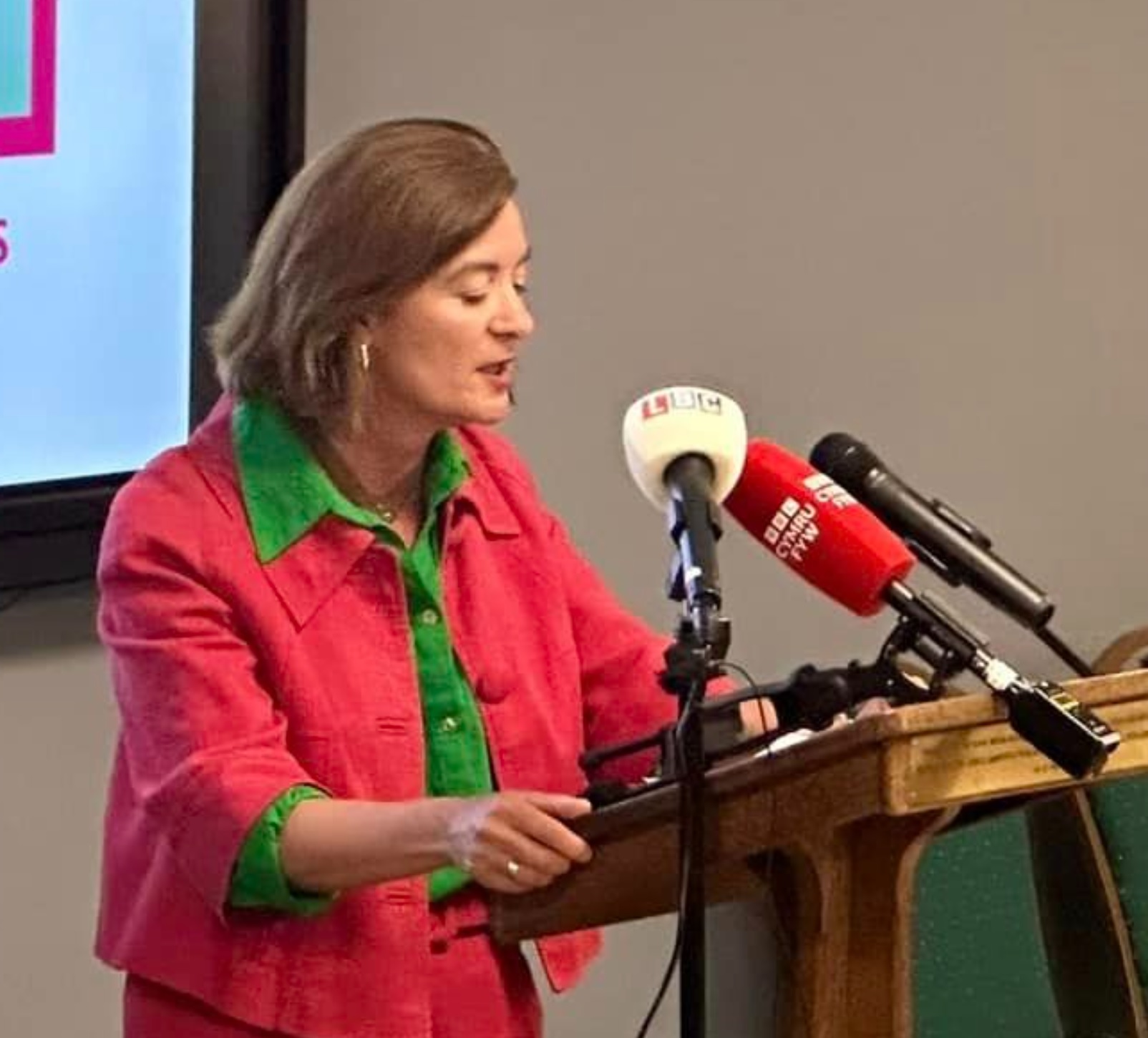Business
Welsh business confidence rises again in October

BUSINESS confidence in Wales rose three points to 39% in October, according to the latest Business Barometer from Lloyds. This increase reflects growing optimism among firms about their trading prospects and the wider economy.
Companies in Wales reported a rise in confidence about their own business outlook, up three points to 49%, while their optimism regarding the economy also increased by three points to 30%. Together, these factors contributed to the headline confidence reading of 39%, up from 36% in September.
Focus on growth
Looking ahead, Welsh businesses have outlined key areas for growth over the next six months. A significant 41% plan to invest in their teams through training, 36% aim to diversify their offerings by introducing new products or services, and 32% intend to adopt new technology. Additionally, a net balance of 25% of businesses expect to increase staffing levels over the coming year, a five-point rise from the previous month.
The Business Barometer, which surveys 1,200 businesses each month, provides an early indicator of economic trends both regionally and across the UK.
National picture
In contrast to the positive trend in Wales, overall UK business confidence dipped three points to 44% in October, down from 47% in September. This decline was driven by slight drops in firms’ confidence about their own trading prospects (53% compared to 56% in September) and the broader economic outlook (35% down from 38%).
Among UK regions, the North East recorded the highest business confidence in October at 63%, followed by London at 56% and the North West at 53%.
Sector insights
The manufacturing sector saw a decrease in trading prospects for the third consecutive month, falling to 46%—its lowest point since March. The retail and services sectors also experienced modest declines of three points, landing at 51% and 57%, respectively. However, the construction sector showed resilience, with confidence rising to 50%.
Expert insights
Sam Noble, Regional Director for Wales at Lloyds, said: “It’s encouraging to see Welsh business confidence continue to build. Businesses have clear plans for growth, with many focusing on investing in their staff—a move that will strengthen not just their operations but the wider economy. Whatever their plans, we’ll continue to stand by their side with our support.”
Hann-Ju Ho, Senior Economist at Lloyds Commercial Banking, commented: “While overall business confidence in the UK dipped in October, it follows a period of sustained optimism. Many businesses remain positive about their own trading prospects, and the increase in hiring intentions suggests more employers are looking to expand their workforce. As businesses move into the final part of the year, they will focus on managing these opportunities effectively.”
Business
Tax deadline for self-employed and landlords as digital system goes live in April

Quarterly online reporting to become mandatory for higher earners under HMRC shake-up
MORE than 860,000 sole traders and landlords across the UK are being urged to prepare now for major changes to the way they report tax, with new digital rules coming into force in just two months.
From April 6, thousands of self-employed workers and property landlords earning over £50,000 a year will be required to keep digital records and submit quarterly income updates to HM Revenue & Customs under the Government’s Making Tax Digital scheme.
The changes form part of a wider overhaul designed to modernise the tax system and reduce errors.
Instead of submitting figures once a year, those affected will use approved software to record income and expenses throughout the year and send short quarterly summaries to HMRC. Officials stress these are not extra tax returns, but updates intended to spread the workload and avoid the usual January rush.
Free and paid software options are available, with the system automatically generating the figures needed for submission.
At the end of the tax year, users will still file a Self Assessment return, but most of the information will already be stored digitally.
Craig Ogilvie, HMRC’s Director of Making Tax Digital, said the move should make tax reporting simpler.
He said: “With two months to go until MTD for Income Tax launches, now is the time to act. The system is straightforward and helps reduce errors. Thousands have already tested it successfully.
“Spreading your tax admin throughout the year means avoiding that last-minute scramble to complete a tax return every January.”
More than 12,000 quarterly updates have already been submitted during a voluntary trial.
Phased rollout
The new rules will be introduced gradually:
• From April 2026 – those earning £50,000 or more
• From April 2027 – those earning £30,000 or more
• From April 2028 – those earning £20,000 or more
To ease the transition, HMRC says it will not issue penalty points for late quarterly submissions during the first 12 months.
After that, a points system will apply, with a £200 fine only triggered once four late submissions are reached.
Anyone unable to use digital tools for genuine reasons can apply for an exemption.
Tax agents and accountants are advising clients to prepare early to avoid last-minute problems.
Further guidance, webinars and sign-up details are available via GOV.UK.
Business
Bid to convert office space into chocolate factory, salon and laundrette

A CALL for the retrospective conversion of office space previously connected to a Pembrokeshire car hire business to a chocolate factory, a beauty salon and a laundrette has been submitted to county planners
In an application to Pembrokeshire County Council, Mr M Williams, through agent Preseli Planning Ltd, sought retrospective permission for the subdivision of an office on land off Scotchwell Cottage, Cartlett, Haverfordwest into three units forming a chocolate manufacturing, a beauty salon, and a launderette, along with associated works.
A supporting statement said planning history at the site saw a 2018 application for the refurbishment of an existing office building and a change of use from oil depot offices to a hire car office and car/van storage yard, approved back in 2019.
For the chocolate manufacturing by ‘Pembrokeshire Chocolate company,’ as part of the latest scheme it said: “The operation comprises of manufacturing of handmade bespoke flavoured chocolate bars. Historically there was an element of counter sales but this has now ceased. The business sales comprise of online orders and the delivery of produce to local stockist. There are no counter sales from the premises.”
It said the beauty salon “offers treatments, nail services and hairdressing,” operating “on an appointment only basis, with the hairdresser element also offering a mobile service”. It said the third unit of the building functions as a commercial laundrette and ironing services known as ‘West Coast Laundry,’ which “predominantly provides services to holiday cottages, hotels and care homes”.
The statement added: “Beyond the unchanged access the site has parking provision for at least 12 vehicles and a turning area. The building now forms three units which employ two persons per unit. The 12 parking spaces, therefore, provide sufficient provision for staff.
“In terms of visiting members of the public the beauty salon operates on an appointment only basis and based on its small scale can only accommodate two customers at any one time. Therefore, ample parking provision exists to visitors.
“With regard to the chocolate manufacturing and commercial laundrette service these enterprises do not attract visitors but do attract the dropping off laundry and delivery of associated inputs. Drop off and collections associated with the laundry services tend to fall in line with holiday accommodation changeover days, for example Tuesday drop off and collections on the Thursday.
“With regard to the chocolate manufacturing ingredients are delivered by couriers and movements associated with this is also estimated at 10 vehicular movements per week.”
The application will be considered by county planners at a later date.
Business
First Minister criticised after ‘Netflix’ comment on struggling high streets

Government announces 15% support package but campaigners say costs still crushing hospitality
PUBS, cafés and restaurants across Wales will receive extra business rates relief — but ministers are facing criticism after comments suggesting people staying home watching Netflix are partly to blame for struggling high streets.
The Welsh Government has announced a 15% business rates discount for around 4,400 hospitality businesses in 2026-27, backed by up to £8 million in funding.
Announcing the package, Welsh Government Finance Secretary Mark Drakeford said: “Pubs, restaurants, cafés, bars, and live music venues are at the heart of communities across Wales. We know they are facing real pressures, from rising costs to changing consumer habits.
“This additional support will help around 4,400 businesses as they adapt to these challenges.”
The announcement came hours after Eluned Morgan suggested in Senedd discussions that changing lifestyles — including more time spent at home on streaming services — were contributing to falling footfall in town centres.
The remarks prompted political backlash.
Leader of the Welsh Liberal Democrats, Jane Dodds, said: “People are not willingly choosing Netflix over the high street. They are being forced indoors because prices keep rising and wages are not.
“Blaming people for staying at home is an insult to business owners who are working longer hours just to survive.”
Industry groups say the problem runs deeper than consumer behaviour.
The Campaign for Real Ale (CAMRA) welcomed the discount but warned it would not prevent closures.
Chris Charters, CAMRA Wales director, said: “15% off for a year is only the start. It won’t fix the unfair business rates system our pubs are being crushed by.
“Welsh publicans need a permanent solution, or doors will continue to close.”
Across Pembrokeshire, traders have repeatedly told The Herald that rising energy bills, wage pressures and rates — rather than a lack of willingness to go out — are keeping customers away.
Several town centres have seen growing numbers of empty units over the past year, with independent shops and hospitality venues reporting reduced footfall outside the main tourist season.
While ministers say the relief balances support with tight public finances, business groups are calling for wider and longer-term reform.
Further debate on rates changes is expected later this year.

-

 Crime1 day ago
Crime1 day agoSex offender jailed after living off grid in Pembrokeshire and refusing to register
-

 Health11 hours ago
Health11 hours agoHealth board targets rise in steroid and gym drug use across west Wales
-

 News3 days ago
News3 days agoPrincess of Wales visits historic Pembrokeshire woollen mill
-

 Crime7 days ago
Crime7 days agoPembroke man accused of child sex offences sent to Swansea Crown Court
-

 Health4 days ago
Health4 days agoDoctor struck off after sexual misconduct findings at Withybush Hospital
-

 Crime13 hours ago
Crime13 hours agoTeacher injured and teenager arrested for attempted murder at Milford Haven School
-

 Community6 days ago
Community6 days ago50s women threaten legal action over pension compensation refusal
-

 Crime3 days ago
Crime3 days agoHakin man’s appeal delayed again as Crown Court seeks guidance on insurance law

























